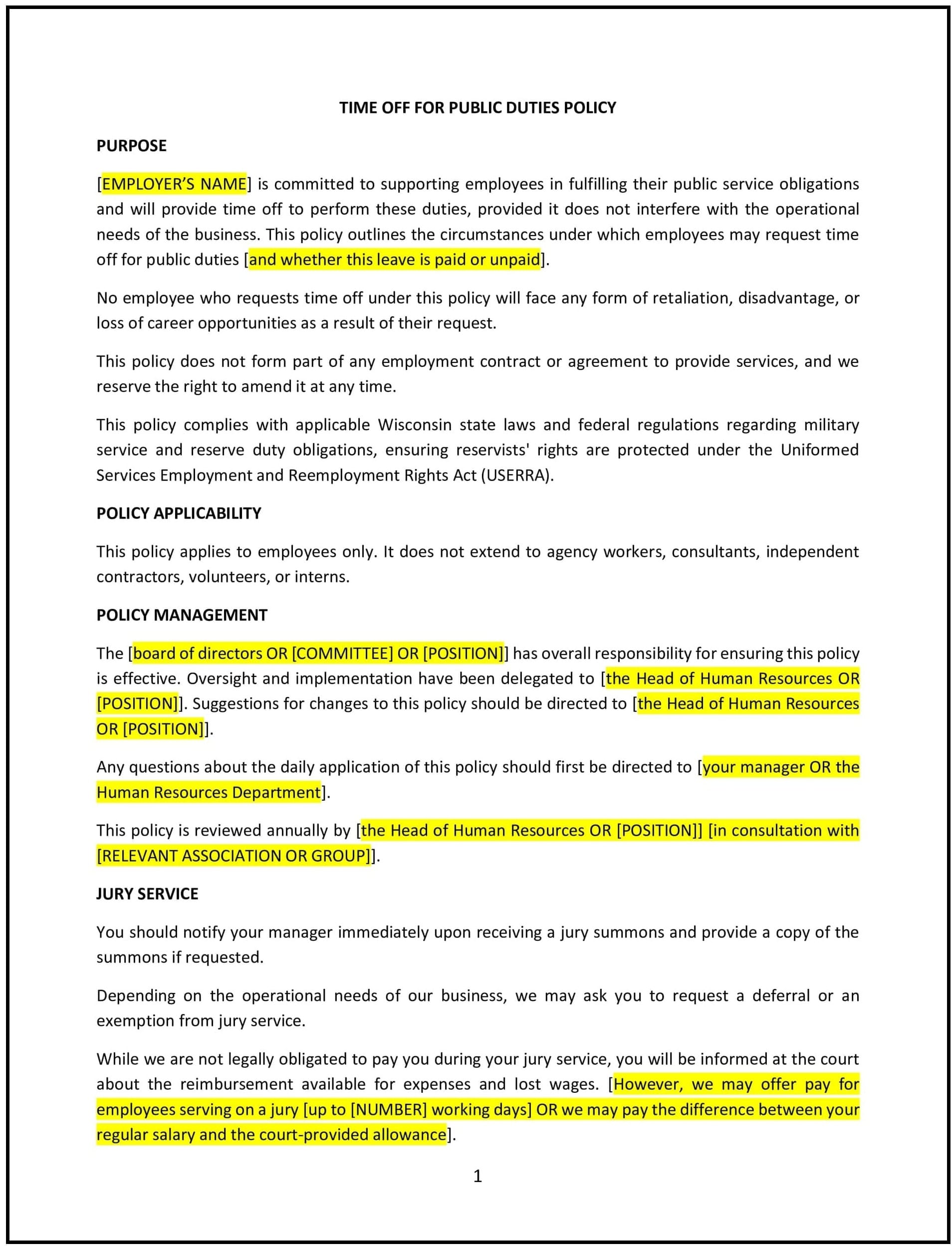Time off for public duties policy (Wisconsin): Free template
Got contracts to review? While you're here for policies, let Cobrief make contract review effortless—start your free review now.

Customize this template for free
Time off for public duties policy (Wisconsin)
In Wisconsin, a time off for public duties policy ensures employees can fulfill their civic responsibilities, such as serving on a jury, appearing in court as a witness, or participating in other legally required public duties, without jeopardizing their employment. This policy supports compliance with Wisconsin labor laws while promoting civic engagement and fairness in the workplace.
The policy outlines the eligibility, procedures for requesting time off, and the company’s responsibilities regarding pay and job protection during public duty leave.
How to use this time off for public duties policy (Wisconsin)
- Define eligible duties: Clearly specify the types of public duties covered under this policy, such as jury duty, appearing as a witness, or participating in municipal government.
- Explain the request process: Outline the steps employees must follow to request time off, including providing advance notice and documentation of the public duty.
- Address pay guidelines: Clarify whether employees will be paid during their leave, including any requirements under Wisconsin law for jury duty compensation.
- Ensure job protection: Confirm that employees’ positions will be protected during their public duty leave, as required by law.
- Support compliance: Align the policy with Wisconsin’s labor laws and federal requirements regarding public duties and leave protections.
Benefits of using a time off for public duties policy (Wisconsin)
- Promotes civic engagement: Encourages employees to participate in public duties without fear of losing their jobs or income.
- Supports compliance: Helps the organization adhere to Wisconsin labor laws and federal requirements for public duty leave.
- Enhances employee trust: Demonstrates the company’s commitment to supporting employees in fulfilling their legal responsibilities.
- Reduces disputes: Provides clear guidelines and expectations for both employees and employers regarding public duty leave.
- Maintains workforce stability: Ensures that employees can return to their roles without disruption after completing their public duties.
Tips for using a time off for public duties policy (Wisconsin)
- Communicate the policy: Include the policy in employee handbooks and share it during onboarding to ensure all employees are aware of their rights and responsibilities.
- Request documentation: Require employees to provide official documentation, such as a jury summons or court notice, when requesting public duty leave.
- Coordinate schedules: Work with employees to minimize disruptions to operations during their leave, if possible.
- Monitor compliance: Ensure the policy aligns with updates to Wisconsin laws and federal regulations regarding public duty leave.
- Provide flexibility: Offer additional support, such as unpaid leave, for public duties not covered by Wisconsin law but important to the employee.